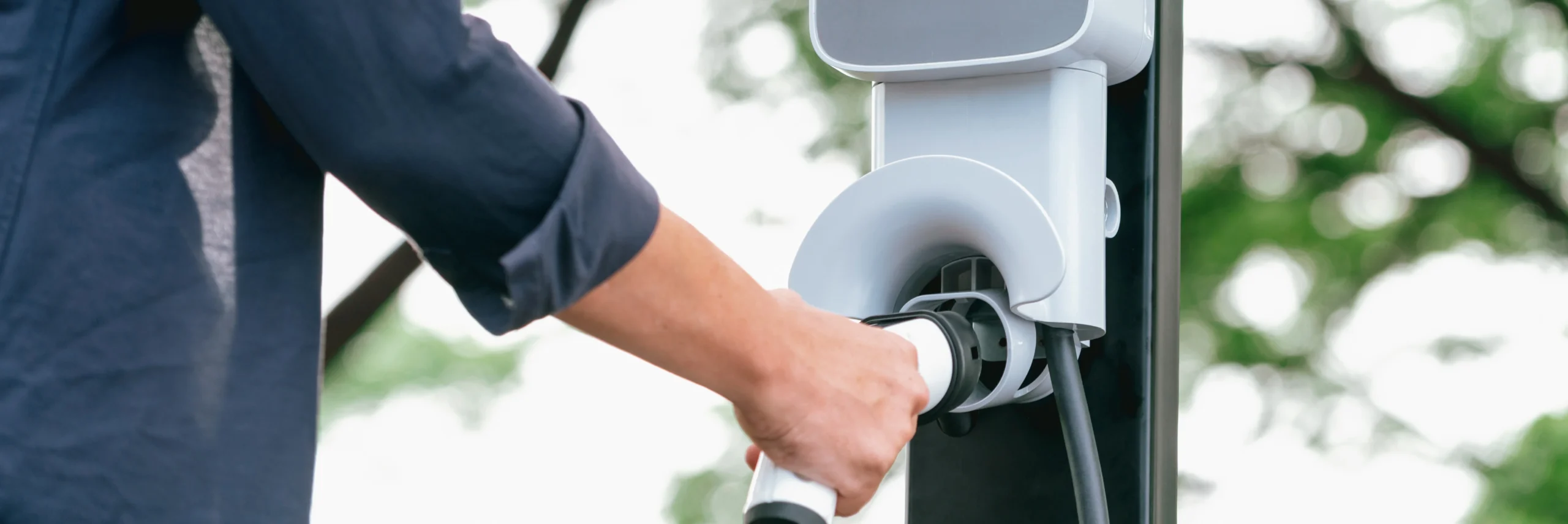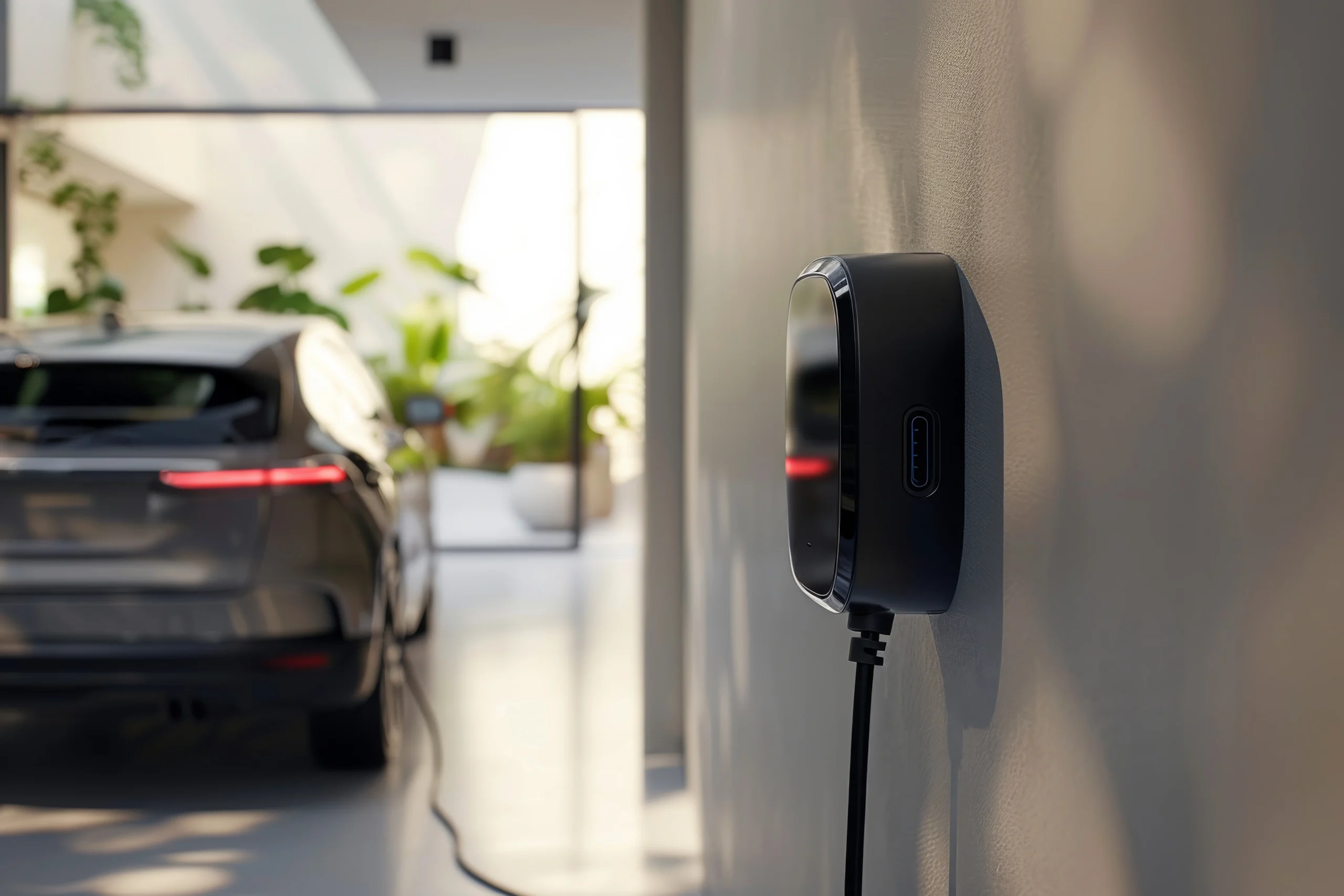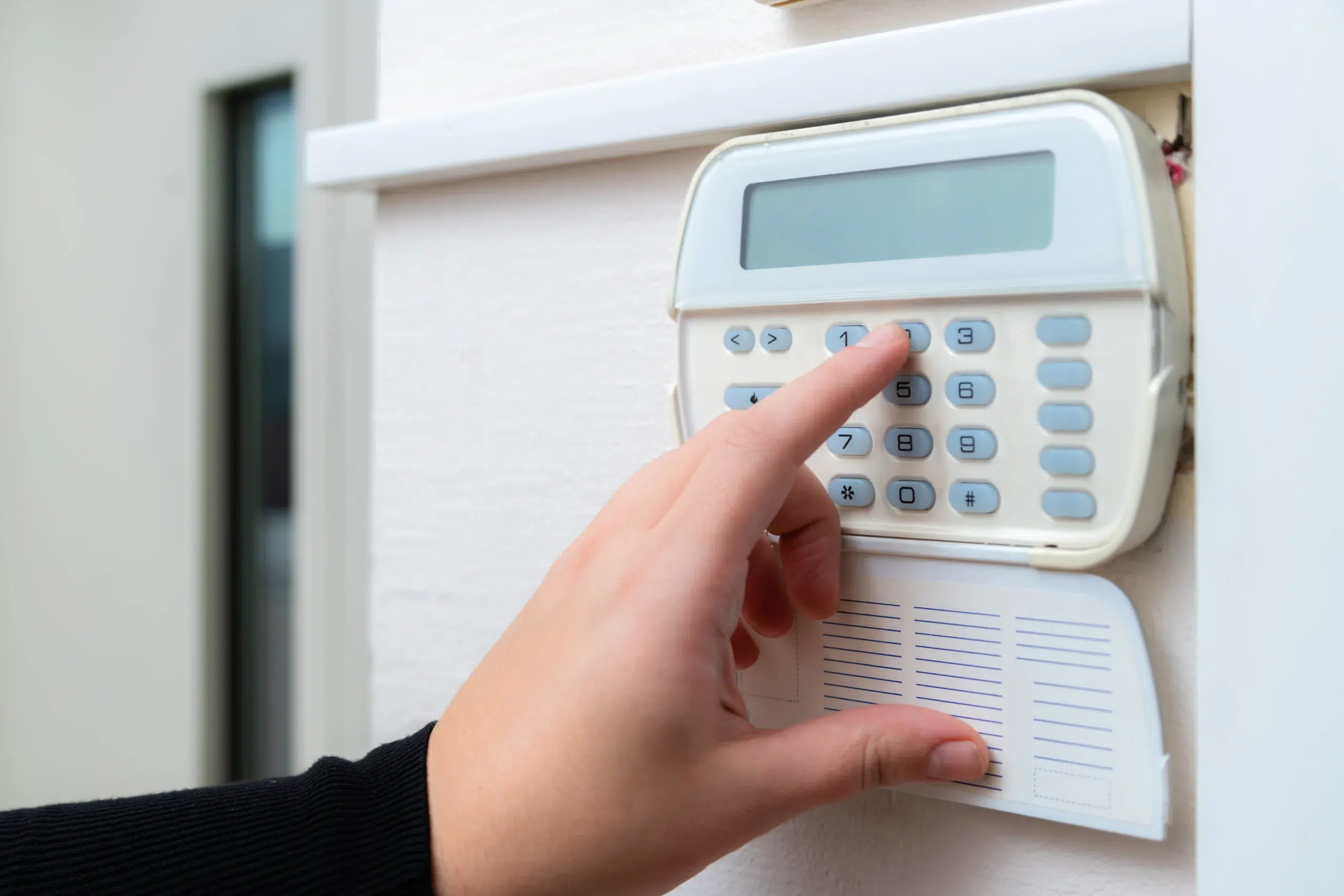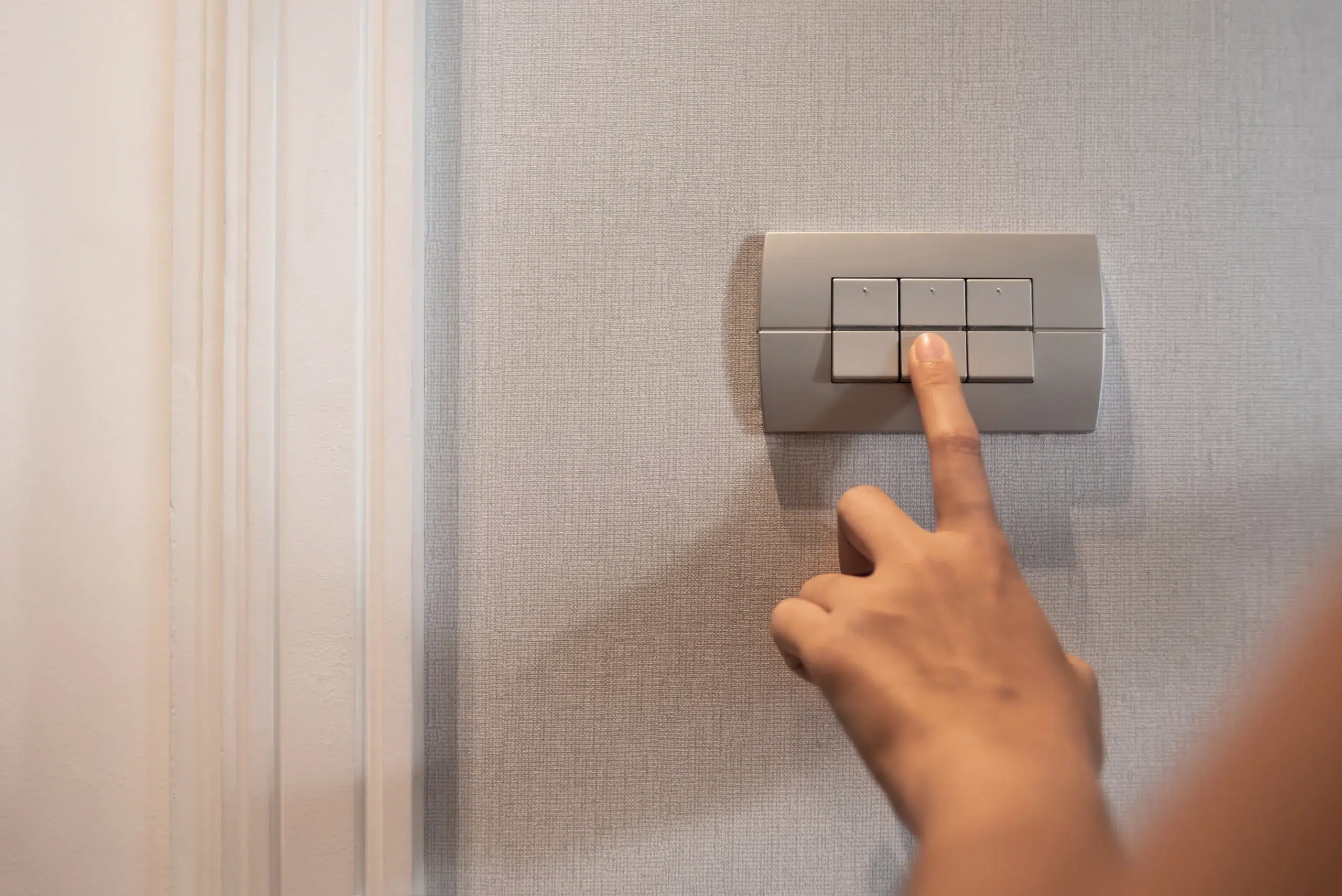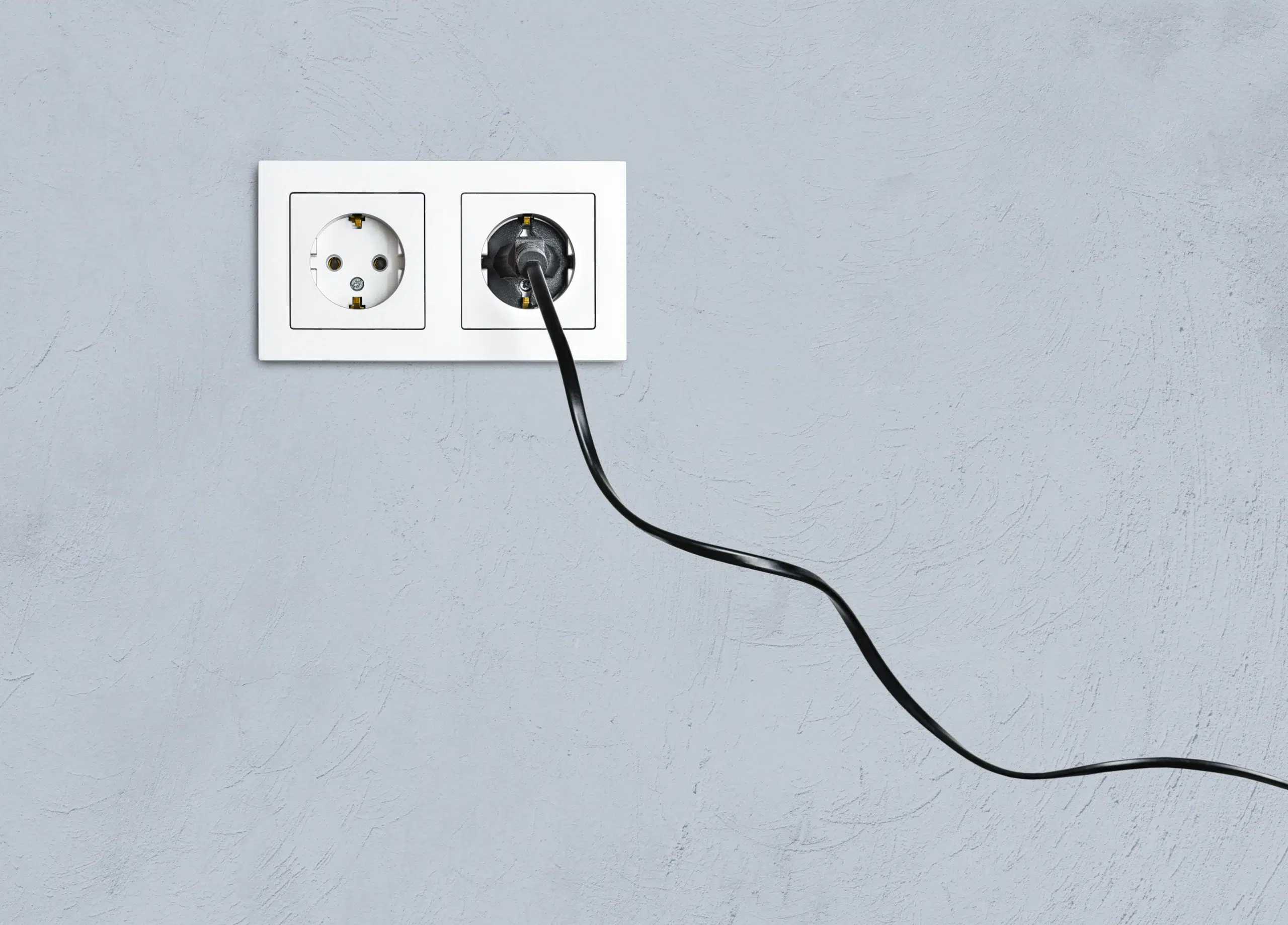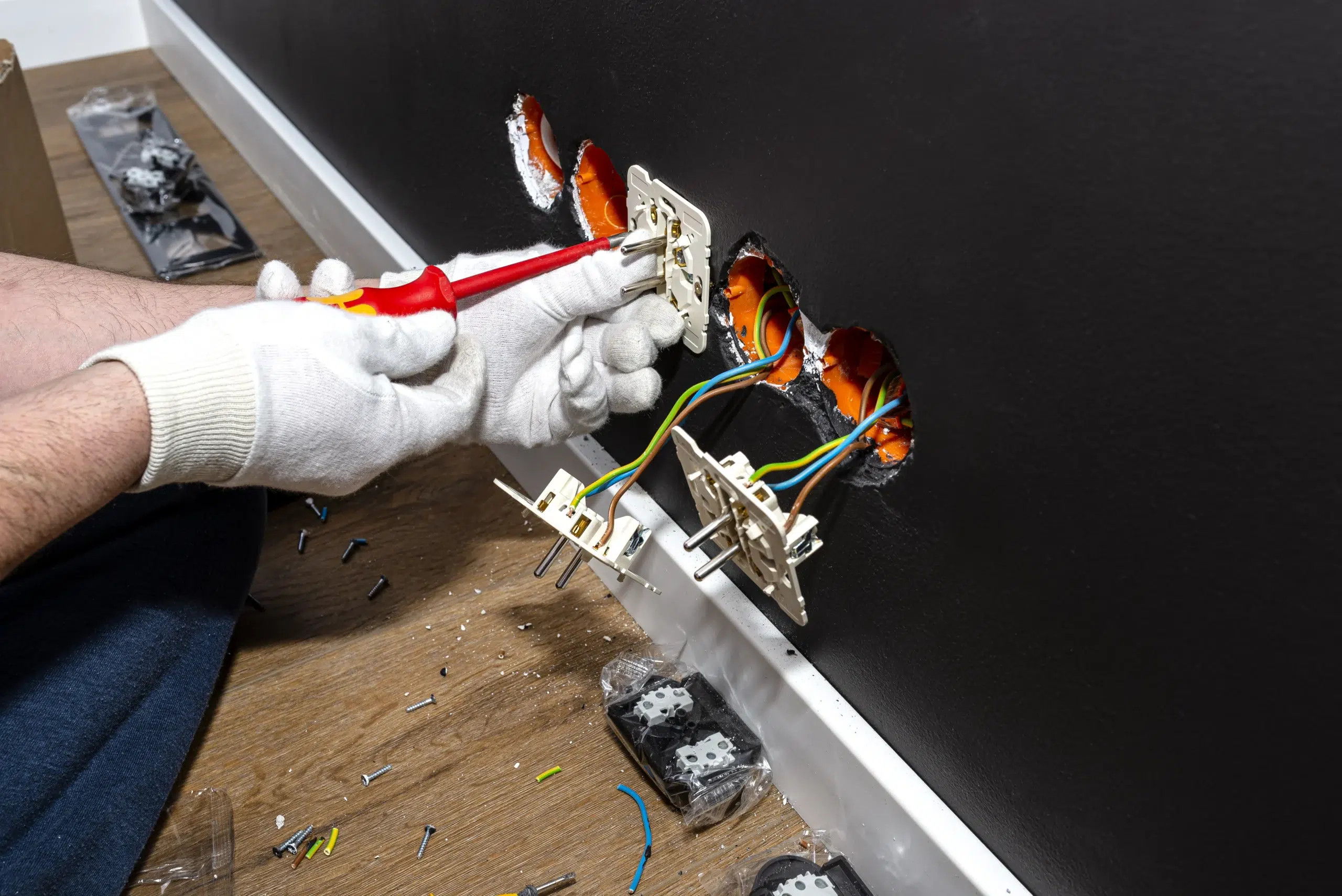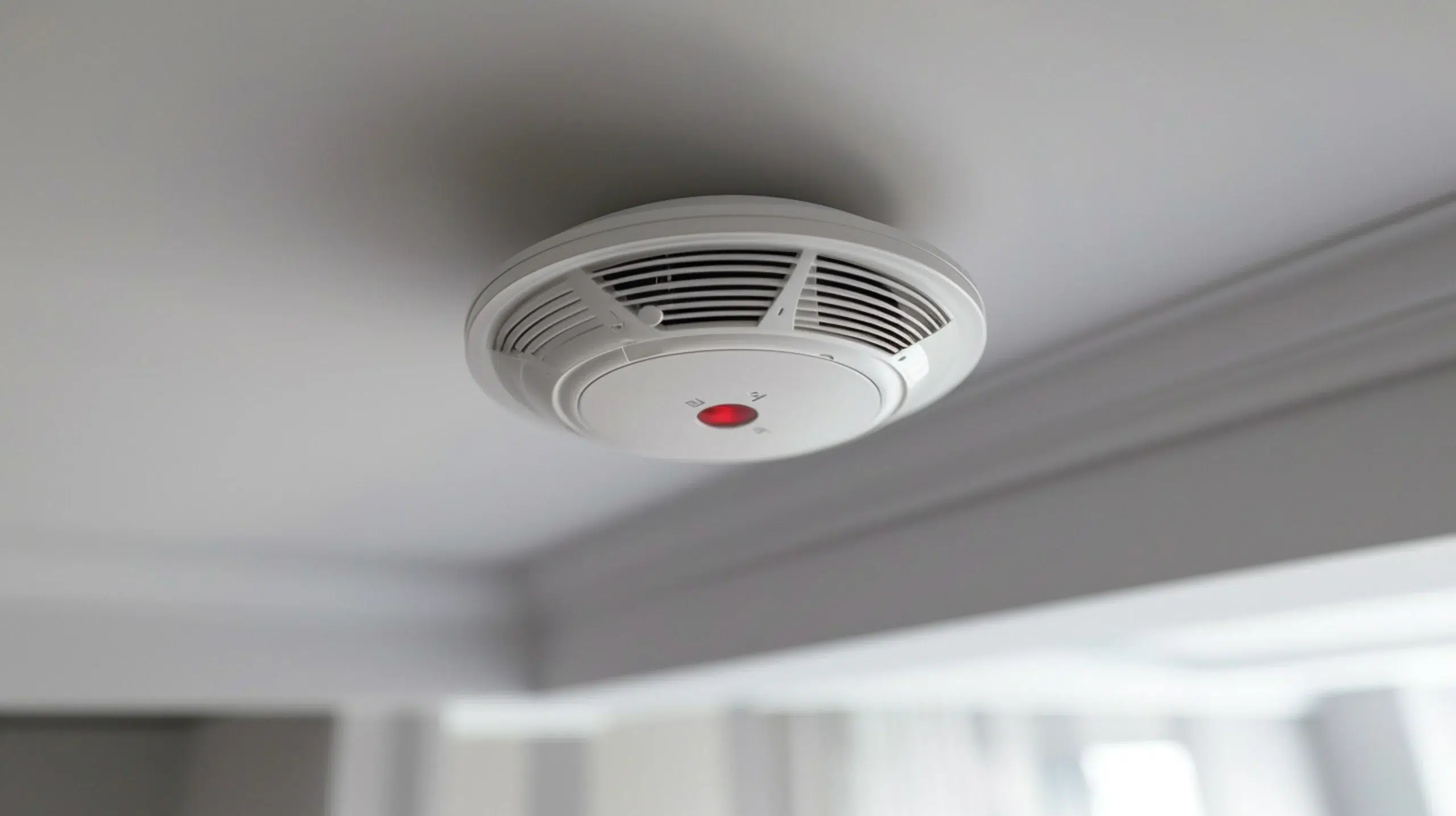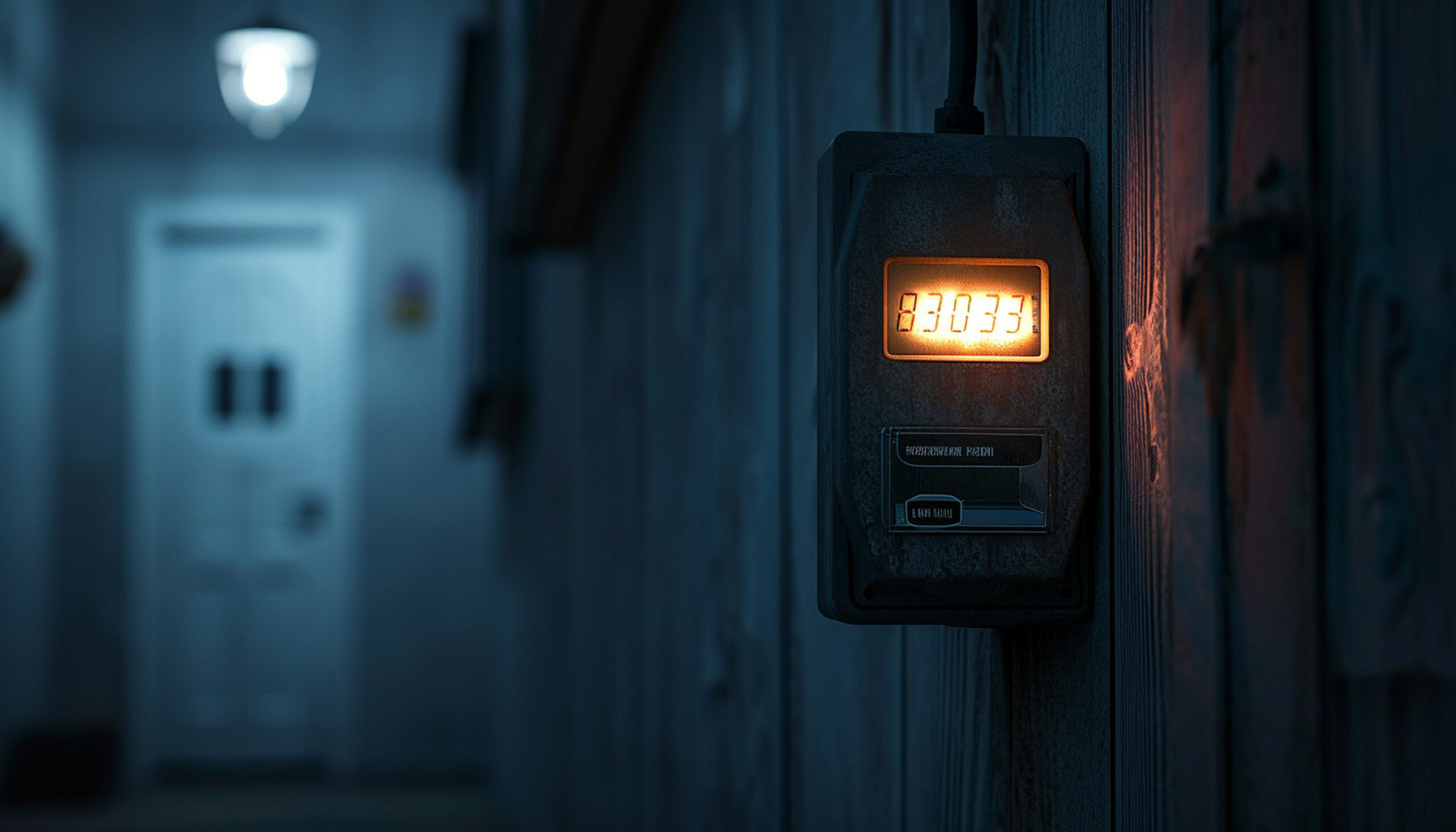The Light Switch Feels Warm or Smells Burnt — What Should I Do?
Category:
Light switches are part of everyday life, but most homeowners rarely give them more than a second thought. These basic devices are designed to operate safely and should not heat up during normal use. However, when a light switch feels warm or you notice a burnt smell coming from the switch fittings, the issue should never be ignored. These are early signs of an electrical fault that can quickly escalate into serious dangers.
Using a defective switch puts your family at risk of fire, damage to appliances, or even electric shock. In this article, we explain why switches should never feel warm, the common causes of overheating, the dangers of ignoring the signs, and the immediate steps you should take—including when to call an Emergency Electrician for professional help.
Why a light switch should never feel warm
Normal operation vs. warning signs
A properly functioning light switch should remain at room temperature during regular use. If a switch feels warm, it usually indicates resistance in the current flow or loose connections that disrupt the passage of electricity. A burnt smell from the switch is another red flag and points to overheating. These warning signs must not be dismissed, as they signal underlying faults that may lead to severe electrical hazards if left untreated.
Common causes of heat build-up
Overloaded circuits, loose wiring, or worn insulation are the most common reasons a switch overheats. Cheap or poor-quality switches can also fail under normal loads, especially in older homes. These problems increase the risk of fire. If you notice any of these signs, contact a licensed electrician in Sydney. An emergency electrician can provide quick repairs to protect your home and family.
Possible causes of a burnt smell or heat
Overloaded circuit
One of the main reasons for a warm or burning switch is an overloaded circuit. When too many high-wattage appliances run on the same line, the excess demand strains the wiring and generates heat. Over time, this continuous load can cause overheating, burning smells, and visible heat around the switch plate.
Loose or damaged wiring
Loose or damaged connections within the switch prevent electricity from flowing steadily, creating sparks or arcing that produce heat. This issue is especially dangerous because it usually happens inside the wall, making it difficult for homeowners to detect until the burnt smell becomes strong.
Old or defective switch
Like all hardware, switches deteriorate with age. Worn-out internal contacts cannot handle current properly, leading to overheating during everyday use. Replacing old switches with the help of a licensed electrician in Sydney is the safest way to prevent risk.
Moisture exposure
Switches in damp areas such as bathrooms or outdoors are vulnerable to moisture. Humidity can seep into the switch, increasing resistance or causing a short circuit. This often results in heat or a burning odour, especially if waterproof fittings are inadequate. An Emergency Electrician should handle moisture-related faults immediately to prevent fire hazards.
The dangers of ignoring the signs
Fire hazard
A switch that feels hot or emits a burning smell is often a sign of overheating wires. Ignoring it can lead to sparks or even a house fire. Acting quickly by contacting a licensed electrician in Sydney or an Emergency Electrician can save lives and prevent disaster.
Electric shock risks
Faulty switches are more than an inconvenience—they’re a serious safety hazard. Loose wiring or damaged insulation can expose live parts, creating a risk of shock during normal use. To keep your family safe, ensure any issues are fixed by a qualified electrician.
Damage to the electrical system
Overheating at the switch doesn’t just damage the switch itself. It can affect nearby plugs, wiring, and even the circuit breaker. Left unaddressed, these issues shorten the lifespan of your electrical system and lead to costly repairs. Calling an Emergency Electrician at the first sign of trouble can stop further damage.

What you should do immediately
Turn off power at the switchboard
If your light switch feels hot or gives off a burnt smell, shut off power at the main switchboard right away. This eliminates the immediate risk of fire or shock until an electrician arrives.
Stop using the faulty switch
Do not continue using an overheated switch. Reuse can worsen the damage and increase the risk of sparking or fire. Leave the switch untouched until a licensed electrician or an Emergency Electrician inspects and repairs it.
Call a licensed electrician
Contact a qualified electrician in Sydney immediately. They can inspect the fault, repair wiring, and safely replace damaged switches. If the problem occurs late at night or on a weekend, call an Emergency Electrician for urgent service.
Do not attempt DIY repairs
DIY electrical work in Australia is both unsafe and illegal. Attempting repairs risks fire, shock, or property damage and may also void your insurance. Always leave electrical work to a licensed professional.
When to Call a Licensed Electrician
Regular electrical inspections
Scheduling routine inspections with a licensed electrician helps identify small issues before they become dangerous. Regular checks reduce the risk of switches overheating or producing burnt smells.
Upgrading old switches and wiring
If your home has old wiring or outdated switches, upgrading is essential. Modern switches offer better safety features and higher load capacity. This is especially important in older homes, where wiring may no longer meet current safety standards.
Avoid overloading circuits
Distribute your electrical load across different circuits. For example, avoid running several high-powered appliances on the same outlet. Proper load management keeps switches from overheating and ensures safer operation.
Conclusion
FAQ's
Is it normal for a light switch to feel slightly warm?
No. A switch that feels warm usually indicates resistance, loose wiring, or an overloaded circuit. Switches should stay cool during use. If you notice warmth or a burning smell, stop using it and call an electrician.
What should I do if I smell burning plastic from a switch?
A burning plastic smell means overheating. Switch off power at the main switchboard and avoid using the switch. Contact a licensed electrician immediately, or call an Emergency Electrician for urgent help.
Can a faulty light switch cause an electrical fire?
Yes. Warm switches or those that emit a burning smell can lead to fires due to overheated wiring or loose connections. Always treat these signs seriously and seek professional help.
Should I replace a switch myself or hire an electrician?
Never attempt DIY electrical work in Australia. It is illegal and highly dangerous. If a switch feels warm or smells burnt, only a licensed electrician should repair or replace it safely.
How often should I check my home’s switches and wiring?
It’s recommended to schedule inspections every few years, or sooner if you notice problems. A licensed electrician can assess your wiring and switches, helping prevent electrical faults.
Will insurance cover fire damage caused by faulty switches?
It depends on your policy. However, insurers often reject claims if you ignored warning signs or attempted illegal DIY work. Always engage a licensed electrician or Emergency Electrician to stay compliant and safe.
93 Exley Road Wedderburn NSW 2560 Campbelltown & South West Sydney
Why Installing Your Own EV Charger Could Void Your Car’s Warranty and Insurance
Why Installing Your Own EV Charger Could Void Your Car’s Warranty and Insurance Category: The...
Read MoreThe Hidden Damage Rodent Cause to Electrical Wiring and Insulation
What Does a Pre-Installation EV Charger Inspection Entail? Category: Installing an EV charger at your...
Read MoreThinking of Installing an EV Charger in Your Apartment or Shared Parking Area? Here’s What You Need to Know
Thinking of installing an EV charger in your apartment or shared parking area? Here’s what...
Read MoreIs It Safe to Install an EV Charger Outdoors in Sydney’s Weather Conditions?
How to Choose the Right Gate Intercom for Your Property Category: The increased availability of...
Read MoreHow to Choose the Right Gate Intercom for Your Property
How to Choose the Right Gate Intercom for Your Property Category: Selecting the appropriate gate...
Read MoreThe Light Switch Feels Warm or Smells Burnt — What Should I Do?
The Light Switch Feels Warm or Smells Burnt — What Should I Do? Category: Light...
Read MoreWhy Do I Get a Small Electric Shock from My Appliances?
Why Do I Get a Small Electric Shock from My Appliances? Category: Small electric shocks...
Read MoreElectrical Surges Damaging Your Appliances? Here’s What You Can Do
Electrical Surges Damaging Your Appliances? Here’s What You Can Do Category: An electrical surge refers...
Read MoreWhat are the types of smoke Alarms and How Does It Work?
What are the types of smoke Alarms and How Does It Work? Category: A smoke...
Read MorePower Outage in Just One Room? Here’s What Could Be Causing It
Power Outage in Just One Room? Here’s What Could Be Causing It Category: Experiencing a...
Read More
